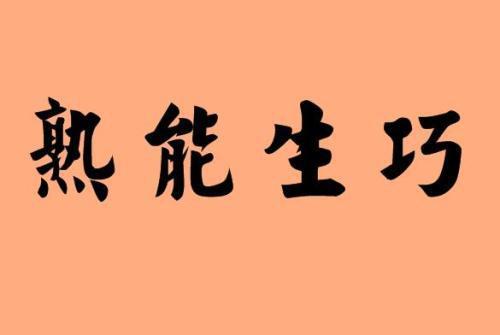
Practice doesn't always help
With blatant disregard for the public benefits of motivational idioms, researchers have concluded that practice does not, necessarily, make perfect. A study of violinists found that merely good players practised as much as, if not more than, better players, leaving other factors such as quality of tuition, learning skills and perhaps natural talent to account for the difference.
近日,一些研究人员公然无视熟能生巧的普世道理,得出结论说:熟不一定能生巧。一项对小提琴演奏者的研究发现,如果不考虑教学质量、学习技巧和天分等因素的差异,水平过得去的演奏者和杰出的演奏者练习的时间一样多,甚至可能更多。
The work is the latest blow to the 10,000-hour rule, which means that enough practice will make an expert of anyone.
这一研究结果是对"一万小时定律"的最新挑战。该定律的意思是只要练习得足够多,任何人都可以成为专家。
Brooke Macnamara, a psychologist at Case Western Reserve University in Cleveland, Ohio, believes practice is less of a driver.
美国俄亥俄州克利夫兰凯斯西储大学的心理学家布鲁克·麦克纳马拉认为,练习的作用并没有那么大。
"Once you get to the highly skilled groups, practice stops accounting for the difference. Everyone has practised a lot and other factors are at play in determining who goes on to that super-elite level," she said. "The factors depend on the skill being learned: in chess it could be intelligence or working memory, in sport it may be how efficiently a person uses oxygen. To complicate matters further, one factor can drive another. A child who enjoys playing the violin, for example, may be happy to practise and be focused on the task because they do not see it as a chore."
她说:"一旦你达到了较高的水平,练习带来的差别就消失了。每个人都进行了大量练习,能否达到精英水平就开始取决于其他因素了。这些因素依据学习的技能不同而发生改变:如果学的是国际象棋,决定因素可能是智力或工作记忆;如果学的是运动,决定因素可能是一个人利用氧气的效率。还有更复杂的情况是,有时候一个因素还会作用于另一个因素。举例而言,一个喜欢拉小提琴的孩子可能比较愿意练习,注意力也比较集中,因为他们不把练琴看成苦差。"
声明:转载此文是出于传递更多信息之目的。若有来源标注错误或侵犯了您的合法权益,请作者持权属证明与本网联系,我们将及时更正、删除,谢谢。
,




